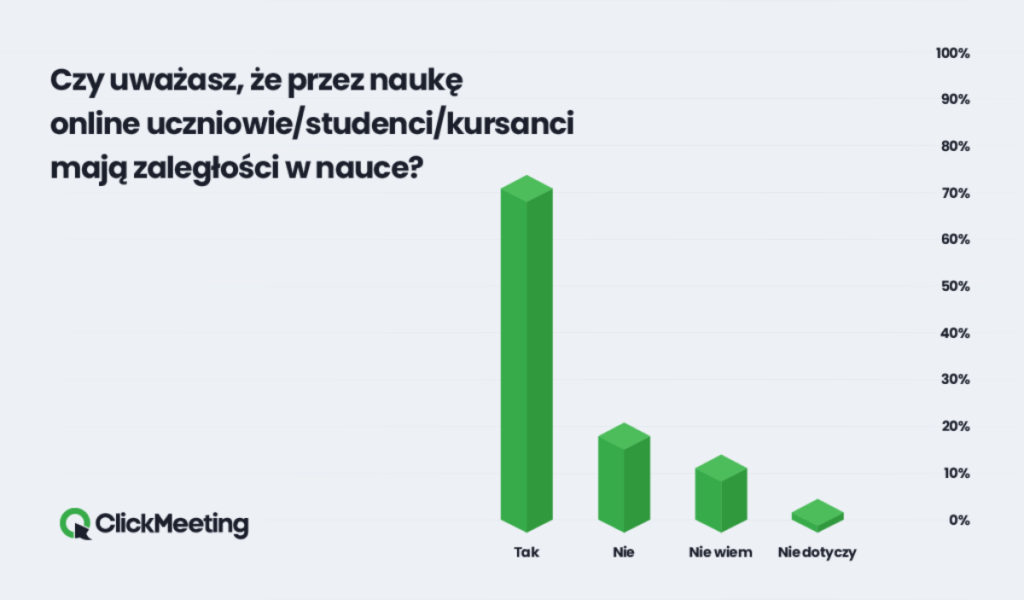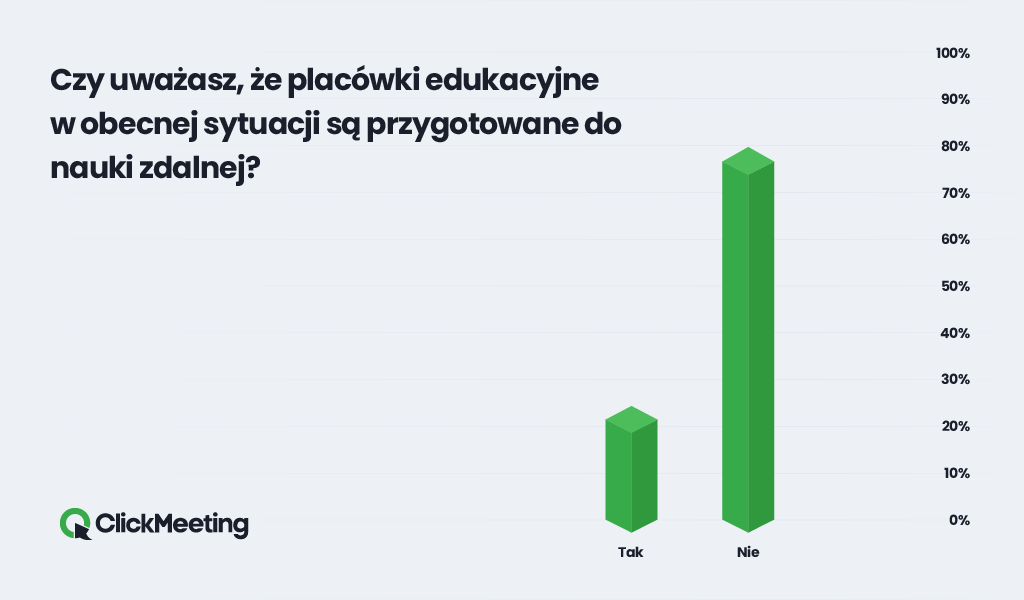The Minister of Health announced Wednesday that from March 20, all children, including the youngest who have recently attended school, will return to distance learning. This situation will continue at least until April 9. This is not good news for most parents.
In September 2020 ClickMeeting published its first questionnaire on how Poles evaluate online learning. Now, 12 months after introducing the first lock and remote learning, we have learned the results of the next edition of our survey.
From the most recent study, “How do we evaluate distance learning after a year of an epidemic?” He explains that in the past six months, the number of people who positively rate the educational institution setting has doubled, but it is still a relatively low percentage – 23%. Nearly 77 percent of those surveyed still believe that schools still have a serious problem delivering lessons online.
In September it was 86%, so we can talk about some improvement in mood
– Note the study authors.
Distance learning – more homework and delays
As much as 32 percent. Of the respondents said they are getting more homework than they were before the pandemic. According to 15 percent, the introduction of distance learning has caused teachers to underestimate their homework.
71 percent believe that as a result of distance learning, pupils and students are falling further behind and not keeping up with the curriculum. 18 per cent of the opposite opinion.

Learning is not only lessons, lectures and homework, but also the need to pass exams, quizzes and tests. More than half of respondents (56%) think verifying information remotely is comfortable for them. This is a slight increase compared to September when this answer was indicated at 52%. Persons. Still as much as 30 percent. He has trouble taking the exams online.
Will hybrid science continue after the pandemic?
Only for less than 7 percent. Distance learning works better than static or hybrid learning. 53 percent indicated full-time education, and 38 percent. – hybrid.
This is a change in favor of the traditional model. In September, the same number of people were in favor of the fixed and hybrid variants (44 percent).
– The study authors indicated.
56 percent of respondents support preserving the hybrid flag also after the pandemic has passed. Only 17 percent. Of the respondents believe that distance learning should be preserved.
Dominika Paciorkowska, ClickMeeting Managing Director, points out that science operates in an unusual setting and this position requires a lot of participants in it – pupils, students, parents and teachers.
A solution that combines both remote and steady mode is perfect and perfect, and will probably stay with us forever
– Persuade.

“Music specialist. Pop culture trailblazer. Problem solver. Internet advocate.”







